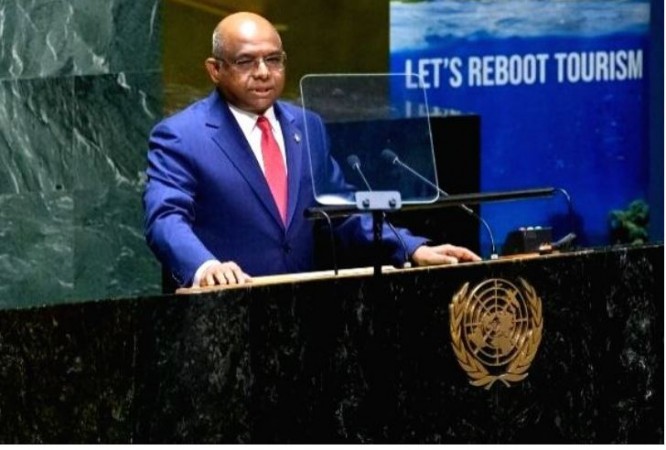
UNITED NATIONS: Abdulla Shahid, President of the United Nations General Assembly's (UNGA) 76th session, has emphasised the importance of developing a more sustainable, resilient, and responsible global tourism sector as part of the "long road" to recovery from Covid-19.
Shahid remarked that the Covid-19 outbreak halted the whole tourist industry, causing a "devastating damage to the world economy" at the first-ever High-Level Thematic Debate on Sustainable Tourism held at the UN headquarters in New York. "Tourism contributed $3.5 trillion to global GDP in 2019, previous to the epidemic. The sudden decline in employment during the epidemic is thought to have cost up to 120 million jobs "The President of the United Nations General Assembly made a point.
Though it is simple to put the devastation into numbers, quantifying the total toll on people, communities, and services is considerably more difficult, he added, especially for many small island nations and least developed countries that rely largely on tourism to fund public spending.
"Travel and tourism link and unite us... develops bridges and facilitates inter-cultural exchanges... and encourages peace and solidarity across continents and countries," Shahid added. Innovative measures, such as "travel bubbles," "vaccine passports," and "resilient corridors," were devised to help tourism survive two years of Covid.
"The tourism sector is rebounding as the pandemic fades," he stated, citing "the human need to connect, discover, and experience." "However, when it recovers, it is critical that we consider its future course." Tourism is vital economically, but its repercussions on the environment, such as carbon emissions, plastic-filled oceans, and human impacts on ecosystems and species, must also be recognised, according to Shahid.
According to the UN Environment Programme's Green Economy Report, a "business-as-usual" scenario predicts a 154 percent increase in energy consumption, 131 percent increase in greenhouse gas emissions, 152 percent increase in water consumption, and 251 percent increase in solid waste disposal for tourism by 2050.
German reliance on Russian energy significantly cut: President
Colombian President warns, Threats against leftist candidate taken 'seriously'
Curb on freedom of expression harms Pakistan's ability to progress: Blinken